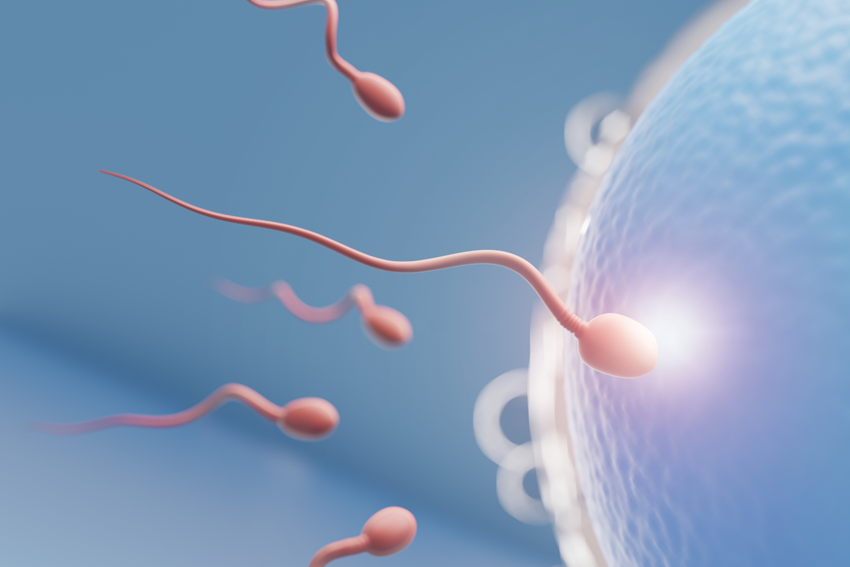Decreased Egg Reserve: Causes Beyond Age & Why Early Evaluation Matters!
When we think about fertility and egg health, age is often the first and only factor that comes to mind. While it's true that age plays a significant role in female fertility, the reality is far more complex. Decreased ovarian reserve—the medical term for a lower-than-expected quantity of eggs—can be caused by a variety of non-age-related factors.
From genetics and medical treatments to lifestyle choices and environmental toxins, there are several reasons why a woman might experience decreased egg reserve earlier than expected. Understanding these factors is critical—not just for those currently trying to conceive, but also for those who may want children in the future.
What Is Decreased Ovarian Reserve?
Ovarian reserve refers to the number and quality of eggs a woman has at any given time. Unlike men, who produce sperm continuously, women are born with all the eggs they’ll ever have—roughly 1 to 2 million at birth, which declines to about 300,000 by puberty. With each menstrual cycle, more eggs are lost.
As a woman ages, the quantity of eggs decline. But when this decline happens earlier or more rapidly than expected, it is referred to as decreased ovarian reserve (DOR).
It’s Not Just About Age: Causes of Decreased Egg Reserve
While age remains the most commonly discussed factor, many younger women are surprised to find they have a low ovarian reserve. Here are several non-age-related causes that could be contributing:
1. Genetic Factors
Some women are genetically predisposed to have a lower egg count. Conditions like Turner syndrome, Fragile X premutation, or a family history of early menopause can significantly impact fertility. If your mother or sister went through menopause early, it might be wise to get your ovarian reserve evaluated sooner rather than later.
2. Pelvic Surgeries
Surgeries involving the ovaries, fallopian tubes, or uterus can inadvertently reduce ovarian reserve. This includes procedures for ovarian cysts, endometriosis, or fibroids, where healthy ovarian tissue may be damaged or removed during surgery.
3. Chemotherapy and Radiation
Cancer treatments, especially chemotherapy and pelvic radiation, can severely harm ovarian tissue. Some chemo drugs are known to be gonadotoxic—meaning they damage reproductive cells. Women undergoing such treatments should consider fertility preservation options like egg freezing.
4. Autoimmune Disorders
Autoimmune diseases such as lupus, rheumatoid arthritis, or autoimmune thyroid conditions can sometimes mistakenly target ovarian tissue, disrupting normal function. These conditions may cause inflammation or directly attack the ovaries, leading to a reduced egg reserve.
5. Lifestyle Factors
Your daily habits could be impacting your fertility more than you realize. Some common lifestyle-related causes include:
- Smoking: Known to accelerate egg loss and damage ovarian DNA.
- Chronic stress: Can lead to hormonal imbalances that disrupt ovulation.
- Poor diet: Nutritional deficiencies—particularly in vitamin D, iron, and omega-3s—can negatively impact ovarian function.
- Excessive exercise or underweight: May disrupt hormonal balance and ovulation.
6. Environmental Toxins
We’re constantly exposed to environmental toxins—many of which are endocrine disruptors that can affect reproductive health. These include:
- Plastics (like BPA in bottles and containers)
- Pesticides and herbicides on food
- Industrial chemicals found in personal care products and household cleaners
These toxins can mimic hormones in the body, interfere with ovulation, and even damage the eggs at the cellular level.
The Importance of Early Evaluation
Many women only discover they have decreased ovarian reserve when they begin trying to conceive and face challenges. But early detection can offer more options and better outcomes.
How Is Ovarian Reserve Measured?
A fertility specialist may recommend:
- AMH (Anti-Müllerian Hormone) Test: Indicates the remaining egg supply.
- AFC (Antral Follicle Count) via ultrasound: Measures the number of visible follicles in the ovaries.
- FSH (Follicle-Stimulating Hormone) levels: Higher levels may suggest diminished ovarian function.
These simple tests can give valuable insight into your fertility window—even if you're not actively trying to get pregnant.
Fertility Planning and Next Steps
If early signs of decreased ovarian reserve are detected, you have several proactive options:
- Egg freezing: Preserves your current egg quality for future use.
- Lifestyle changes: Improve egg health by adopting a nutrient-rich diet, reducing toxin exposure, quitting smoking, and managing stress.
- Assisted reproductive techniques (ART): IVF, IUI, or using donor eggs may be recommended depending on your age and overall reproductive health.
Don’t Wait for a Wake-Up Call
Fertility is often viewed as something to worry about "later." But the reality is, early awareness is empowerment. Whether you’re in your 20s, 30s, or even early 40s, understanding your egg reserve and fertility potential today can make all the difference in how you plan your future.

